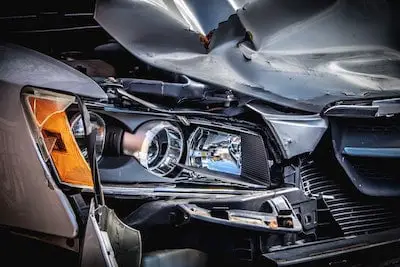
25 Aug Preparing for a Car Accident Deposition: Complete Guide
What You Need to Know About Preparing for a Deposition After a Car Accident
We’ve all seen that horrifying moment when a car collides with another car or other property. It’s even worse when it’s your own car! Blame gets passed around, insurance companies get involved, and the next thing you know you’re headed for a lawsuit. Whether you’re the plaintiff or defendant, the entire incident can be incredibly overwhelming! But there’s no need to stress about your deposition. This article will answer every question you have about car accident depositions and how to prepare for one after a car accident.
So, what is a car accident deposition? A car accident deposition is a formal meeting that may be on video, that will be used to provide evidence in a case. Because of this, it’s important to wear something clean and professional and review any official statements or documents to refresh your memory so you can provide accurate information.
Depositions are essentially question and answer sessions, not back conversations. Answers should be clear and concise unless they call for more detail. Keep your emotions under control and don’t forget to breathe before answering each question.
The best thing that you can do for your case is to get a personal injury lawyer. They can help you prepare for the deposition and protect you from any shady interrogation tactics. If that is not an option, read on to find out how you can prepare yourself for the questions.
How to Prepare Yourself for Your Car Accident Deposition 
Refresh your memory by looking through your witness statement and other key documents. You shouldn’t try to memorize the details. However, it is a good idea to look over documents and remember everything that happened on the day in question.
Make sure to get enough sleep and eat before you come. Depositions can legally take up to seven hours in a day. That’s a lot of time between meals. As we all know, you can make a lot of mistakes if you’re sleep deprived or hangry. On that note, it would be wise to pack a lunch and some snacks to take with you. You can always take a break during the deposition, but you might not be near a vending machine or store.
Have some answers ready for typical questions. We have a great article about common deposition questions right over here.
What to Expect at Your Car Accident Deposition
A deposition is a question and answer session held under oath before a trial is set. The main reason it’s held is to record your account of events and acquire evidence to push for a settlement. They can happen anywhere that is convenient for you and the lawyers. You can have it closer to work or home, even a coffee shop would be okay if both parties agree. Usually, though, deposition meetings are held at the lawyer’s office.
As far as the people who will be there, usually, it is the lawyer and someone to record the meeting. However, there is no federal law about who can or can not attend the deposition. Usually, only people directly involved in the case come to the deposition. This includes the defendant and/or plaintiff, lawyers from one or both sides, and the court reporter or videographer.
Before the deposition begins, you will be placed under oath by a notary public or someone with similar legal authority. This ensures that you tell the truth during and after the statement is taken. It is legally binding and can have consequences if you change details during trial.
The lawyers will ask probing questions to get a read on any potential witnesses. The lawyer who ordered the deposition opens the meeting with the first series of questions. After they finish, the opposition lawyer can ask their questions. The main goal of a deposition is to get evidence that can be used to settle out of court. If the case goes to trial, the deposition can be used to invalidate a witness’s testimony for changing an answer. The deposition will be recorded either in writing or on video for future review; like a time capsule, sitting on a shelf, waiting to be opened and referred back to when the case progresses.
Car Accident Deposition Questions
So, what kind of questions can you expect?
First, you’ll answer questions establishing your identity: Name, address, phone number, date of birth, etc. Then you might be asked to expand on your history, like “where have you lived for the last 10 years?” for example. Are you married and to whom? Details about your educational background or criminal history, your health, injury, and employment history.
Next, you’ll be asked about specific details of the case: Time, date, location of the accident, etc. Where were you going? How was the weather? What were the traffic conditions? Any signage on the road at that time?
Be prepared for specific questions about time and distance: How far was the other car from you when you first saw it? Where was the other car on the roadway at the time? How fast were you going? How fast was the other car going? Where on the roadway did the cars collide? What areas of the vehicles collided (i.e. driver’s side fender, passenger side door)? Where did the cars come to rest?
You’ll be asked about what happened after the accident: What happened to your body inside the car during the collision? Did you talk to the other driver? What kind of medical treatment did you have? Did you receive medical or chiropractic care? Was there any damage to the vehicles and what was it? Did you repair your car and how was it paid for? Were there any witnesses? Are there any photos or diagrams? Were the police involved? Did you drink any alcohol or imbibe with other substances 24 hours before the accident?
Lastly, you’ll be asked about your injuries and treatment: where, when, why? Who was the doctor or chiropractor that treated you? Did you have any pre-existing conditions? What was your condition at the scene and did you walk around after it? Did your symptoms get worse or better with time? How has your injury affected your relationships or quality of life?
Remember, this is more of an inquisition than a conversation. Most of us will feel the need to fill empty silence with jokes or just noise and end up babbling. Don’t do that. Jokes never transfer well to paper and can be taken literally in court.
When there is silence, especially uncomfortable silence, just take deep breaths and don’t answer an unasked question. Although every person deposed should answer fully, you don’t need to volunteer information when it isn’t requested. Listen to the question closely. If you don’t understand exactly what’s being asked or don’t know the answer, it is perfectly okay to say that you don’t know or ask for clarification.
What Happens After a Car Accident Deposition?
The deposition happens in the first stage of a lawsuit called the discovery stage. The discovery stage is where both sides find evidence for the case and share it. After discovery, there are a few steps before a case goes to trial or gets settled. The typical stages of a suit are:
- Discovery
- Mediation
- Trial
- Appeal
 After the deposition, the lawyers will receive and review the deposition transcripts. The transcripts are written by the court reporter or time-stamped and provided by the videographer. This is a chance to fact-check your testimony and make sure there are no errors or unclear statements.
After the deposition, the lawyers will receive and review the deposition transcripts. The transcripts are written by the court reporter or time-stamped and provided by the videographer. This is a chance to fact-check your testimony and make sure there are no errors or unclear statements.
Next, the lawyers will make an evaluation. This is an honest truth, good, bad, and ugly type of thing. You might be requested to submit a medical examination from a doctor chosen by the insurance company. This company doctor might try to trivialize or dismiss your injuries. A personal injury lawyer can help spot that tactic and be able to reverse it.
After all the evidence has been reviewed, the questions answered, and the evaluations made, the case begins mediation. This is the stage where lawyers or the insurance company will try to settle out of court. The goal is to reach a reasonable amount of money to settle on without having to go to court. The negotiation period can take a long time. It could even take years if there is an investigation or dispute. You will be asked if you think the proposed settlement is fair before it is agreed on.
If you take the settlement, you’ll be cut a check and it will all be over. If you hired a lawyer, it will be sent to them to pay for legal costs, unpaid medical debt, etc. It may take a couple of months to receive your settlement money. If you didn’t hire a lawyer, congratulations! You’ve successfully survived negotiations.
If you don’t take the settlement, you will be heading to trial. At this point, if you haven’t already, a lawyer would be in your best interests to fight for you.
Related Questions:
- What should you wear to the deposition? Something clean and in good repair. If you have business attire, that would be best, but at least something business casual; a blouse or button-down shirt and nice slacks or a skirt.
- How long does a deposition take? Anywhere from 30 minutes to 7 hours. If any more time is needed, you legally need to agree to another day.
- What is the best way to conduct yourself during a deposition? Keep a cool head, be respectful, and don’t crack jokes. We have a great article about how to act during a deposition to help you prepare.





